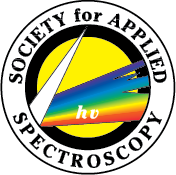|
SAS Certification Program
About Certification
Since 1958 the Society for Applied Spectroscopy has provided spectroscopists all over the world access to career enhancing information via publications like Applied Spectroscopy, short courses, conference symposia, speaker programs, and a robust website. Expertise for these outlets, as well for companies, institutions, and other government and non-government organizations who employ spectroscopists comes from well-trained individuals with a passion for science. SAS strives to enhance the quality of these scientists by providing a professional certification program designed to evaluate the education and professional experience of today’s spectroscopist.
Professional certification means that spectroscopists have demonstrated an appropriate level of education and experience in applying spectroscopic principles in their professional careers. Recognizing the increasing demand and need for certification credentials, SAS is providing the certification program for its members, as well as nonmembers and the public who desire a statement of their professional qualifications.
The professional certification program recognizes spectroscopists who meet a minimum set of standards in education and experience, and who adhere to high ethical standards. The SAS Certification Program serves as a means of identifying well-trained and reliable professionals who meet criteria of competence. Formal certification is an important criterion to be met by spectroscopists, whether they are employed in the private or public sector or in academia. Certification will define the standards, formally identify the profession, and increase the ability of spectroscopists to promote themselves within the profession.
Though certification does not guarantee the competence of individuals to address specific matters, the Society attests that certified members have met minimum education and experience requirement for various certification levels. To assist individuals in promoting their certified status, SAS will maintain a list of certified spectroscopists on it’s website at www.s-a-s.org.
Objectives
- To serve the needs of spectroscopists who wish to establish and validate their professional credentials.
- To serve as a guide in defining minimum standards of education and experience for professional spectroscopists, and to encourage all practicing spectroscopists to meet such standards.
- To assist the public in identifying spectroscopists by establishing a procedure for critical peer evaluation based upon defined minimum education and experience and ethical guidelines.
Requirements For Eligibility
Professional Conduct and Ethics
Certified Spectroscopists shall conduct their activities in accordance with the Code of Ethics of the Society for Applied Spectroscopy and with the highest standards of professional conduct and personal honor. Those who subscribe to the Code of Ethics are eligible for certification, provided they meet minimum education and experience requirements.
Minimum Education Requirements
Candidates must have completed at least a bachelor’s degree or a higher degree in chemistry or a related STEM program that includes the equivalent of at least 30 semester hours of chemistry related science, 9 of which must be in some area of spectroscopy. Grades of B minus or higher are required for courses needed to meet requirements.
Levels of Certification
Spectroscopist in Training
- Successful completion of a bachelor’s degree or higher degree in chemistry or a related STEM program with at least 9 credit hours related to spectroscopy from an accredited college or university. The committee may consider experience over education in its review.
- The Spectroscopist in Training certification category is intended to document quality education in chemistry with a spectroscopy concentration to aid the students’ ability to obtain employment, encourage graduating students to remain active in SAS, inspire existing students to continue their degree pursuit, and remind graduating students of the importance of adhering to the guiding principles of conduct described in the SAS Code of Ethics.
Associate Spectroscopist
- Successful completion of a bachelor’s degree or higher degree in chemistry or a related STEM program with at least 9 credit hours related to spectroscopy from an accredited college or university, The committee may consider experience over education in its review.
- AND at least one (1) year of post-graduate professional experience* gained in the performance of research or data analysis demonstrating technical competence in current application of spectroscopic principles and/or theory. Relevant experience should have been gained at least within the last five (5) years.
Spectroscopist
- Successful completion of a master’s or higher degree in chemistry or a related STEM program with a focus on spectroscopy from an accredited college or university and at least two (2) years of full-time equivalent professional experience* after degree;
- OR at least five (5) years of professional experience* in addition to the education requirement for Associate Spectroscopist; The committee may consider experience over education in its review.
- AND in addition to the experience required for Associate Spectroscopist, demonstration of ability to perform professional work in spectroscopy, such as laboratory analysis or instrument design work within the large field of spectroscopy, must follow completion of the education requirement for qualification at the Spectroscopist level. Relevant experience should have been gained at least within the last five (5) years.
Senior Spectroscopist
- Successful completion of a doctoral degree in chemistry or a related STEM program with a focus on spectroscopy from an accredited college or university, and at least five (5) years of full-time equivalent professional experience* after degree,
- OR at least ten (10) years of professional experience* after completion of the minimum education requirements for certification (qualifying bachelor’s degree or completion of required coursework in post-baccalaureate courses). The committee may consider experience over education in its review.
- Additional experience necessary to qualify at this level includes:
- Demonstration, in work output, of thorough knowledge of the literature and scientific principles and theories of spectroscopy;
- Demonstration of written original contributions or original interpretation of spectroscopic information; and
- Demonstration of technical or organizational competence as evidenced by supervision of projects.
|
